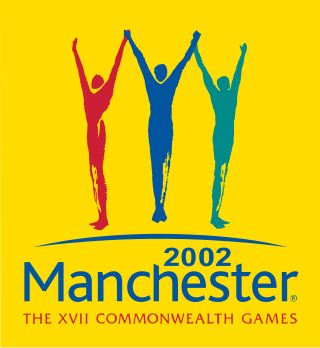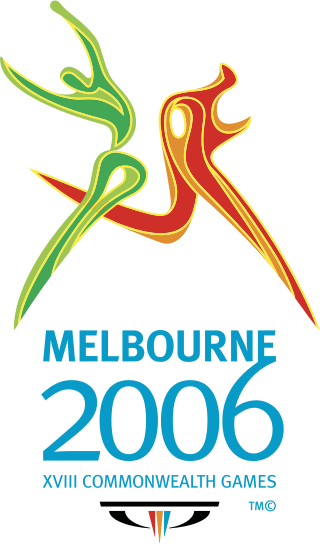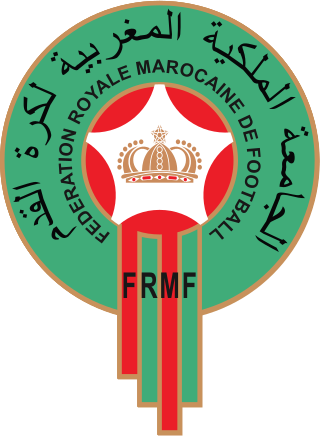
The Commonwealth Games is a quadrennial international multi-sport event among athletes from the Commonwealth of Nations. The event was first held in 1930, and, with the exception of 1942 and 1946, have successively run every four years since. The event was called the British Empire Games from 1930 to 1950, the British Empire and Commonwealth Games from 1954 to 1966, and British Commonwealth Games from 1970 to 1974. Athletes with a disability are included as full members of their national teams since 2002, making the Commonwealth Games the first fully inclusive international multi-sport event. In 2018, the Games became the first global multi-sport event to feature an equal number of men's and women's medal events and four years later they became the first global multi-sport event to have more events for women than men.

The 2002 Commonwealth Games, officially known as the XVII Commonwealth Games and commonly known as Manchester 2002, was an international multi-sport event for the members of the Commonwealth held in Manchester, England, from 25 July to 4 August 2002. The event was to be hosted in the United Kingdom to coincide with the Golden Jubilee of Elizabeth II, head of the Commonwealth, and Manchester was selected for the 2002 Games ahead of London using a recycled part of the project, which lost the 2000 Summer Olympics and Paralympics to Sydney, Australia. The 2002 Commonwealth Games was, prior to the 2012 Summer Olympics, the largest multi-sport event ever to be held in the UK, eclipsing the London 1948 Summer Olympics in terms of teams and athletes participating. The 2002 Commonwealth Games had the largest number of events of any Commonwealth Games in history, featuring 281 events across 17 sports.

The 1934 British Empire Games was the second edition of what is now known as the Commonwealth Games, held in England, from 4–11 August 1934. The host city was London, with the main venue at Wembley Park, although the track cycling events were in Manchester. Seventeen national teams took part, including the Irish Free State.

The 2006 Commonwealth Games, officially the XVIII Commonwealth Games and commonly known as Melbourne 2006, was an international multi-sport event for members of the Commonwealth held in Melbourne, Australia between 15 and 26 March 2006. It was the fourth time Australia had hosted the Commonwealth Games. It was also the largest sporting event to be staged in Melbourne, eclipsing the 1956 Summer Olympics in terms of the number of teams competing, athletes competing, and events being held.

The Royal Moroccan Football Federation, is the governing body of football in Morocco. It was established in 1956. It became a member in the FIFA in 1960, and in the same year it also became a member of CAF. It organizes the football league, the Botola, the Morocco national football team and the Morocco women's national football team. It is based in Rabat. it is also a member of the UAFA and UNAF.

The Commonwealth Games Federation (CGF), currently known as Commonwealth Sport, is the international organisation responsible for the direction and control of the Commonwealth Games and Commonwealth Youth Games, and is the governing body of the Commonwealth Games Associations (CGA). The headquarters of CGF are located in London, England.

A Commonwealth Games Association (CGA) is a national sports council of the Commonwealth Sports movement. Each association is responsible for organising, supporting and overseeing their national team for both the Commonwealth Games and the Commonwealth Youth Games. The associations are subject to the rules of, and report to, the Commonwealth Games Federation. As well as promoting sports nationally, an association can also place a bid for the Commonwealth Games for a potential host city. While some nations have a stand-alone association dealing exclusively with the Commonwealth Games (particularly the Home Nations, the Crown Dependencies and most of the British Overseas Territories, all of whom compete at the Olympics as one Great Britain team but compete as separate teams at the Commonwealth Games), in many of the Commonwealth nations, the local National Olympic Committee performs the function of Commonwealth Games Association for that nation. In a few nations, such as Eswatini and Malawi, the local organisation carries both names in its normal title.
The Commonwealth Shooting Federation Championships is a shooting championship for Commonwealth countries. Organised by the Commonwealth Shooting Federation, it is typically held as a test event for the Commonwealth Games to validate the preparations for the venue and technical officials.

The Commonwealth Games sports comprise all the sports officially recognised and approved by the Commonwealth Games Federation (CGF). There are a total of 16 core sports and a further 4 core para-sports that are competed at every games. In addition, the CGF allow organising committees to choose from various optional sports and disciplines to complete their games' program.
Shooting sports have been contested at the Commonwealth Games at every games since 1966 with the exception of the 1970 and 2022 Commonwealth Games.

The National Rifle Association of India (NRAI) was founded in 1951 with a view to promote and popularize the shooting sports in India. The first speaker of Lok Sabha, Sh. G.V. Mavlankar was the founder and the first president of NRAI followed by Sh. Govind Vallabh Pant, Sh. Lal Bahadur Shastri, Sh. Y. B. Chauhan, Sh. G.S. Dhillon and Sh. Joginder Singh. Sh. Raninder Singh has served as president since December 2010.

The 2022 Commonwealth Games, officially known as the XXII Commonwealth Games and commonly known as Birmingham 2022, was an international multi-sport event for members of the Commonwealth of Nations that took place in Birmingham, England between 28 July and 8 August 2022. It was the third and seventh time England and the United Kingdom hosted the Commonwealth Games, respectively.

The city of Durban, South Africa was initially elected as the host for the 2022 Commonwealth Games on 2 September 2015, at a General Assembly in Auckland, New Zealand. It was reported in February 2017 however, Durban may be unable to host the games due to financial constraints. On 13 March 2017, the Commonwealth Games Federation (CGF) stripped Durban of their rights to host. On 21 December 2017, Birmingham was awarded for the 2022 Games as Durban's replacement host. Louise Martin, president of the Commonwealth Games Federation, made the official announcement at a press conference at the Arena Academy in Birmingham.
The 2026 Commonwealth Games is the planned holding of the Commonwealth Games in 2026. As it would be the 23rd such event, its official title is the XXIII Commonwealth Games.

The Birmingham bid for the 2022 Commonwealth Games was a bid by Birmingham, England and Commonwealth Games England to host the 2022 Commonwealth Games. On 21 December 2017 it was announced that the bid has been successful.

The Durban bid for the 2022 Commonwealth Games was a rejected bid by Durban, South Africa and South African Sports Confederation and Olympic Committee (SASCOC) to host the 2022 Commonwealth Games.
The 2030 Commonwealth Games, officially known as the XXIV Commonwealth Games, will be held in 2030 for members of the Commonwealth. 2030 will mark the centenary of the Games, first held as the British Empire Games, which has been held under various names on a quadrennial basis ever since, save for the Games cancelled due to World War II.
There have been concerns and controversies about the 2022 Commonwealth Games, which were held in Birmingham, England.
An extensive bidding process for the 2026 Commonwealth Games began in 2018, and ended in 2022 with the announcement of the state of Victoria, Australia being the host. The host city was to be announced in 2019 in Rwanda, but was cancelled over lack of interest. The winning bid was announced by Dame Louise Martin, head of the Commonwealth Games Federation (CGF).

Shooting competitions have been confirmed for the 2026 Commonwealth Games programme in Victoria, Australia. The Games have been scheduled to take place from the 17 to 29 March 2026.












